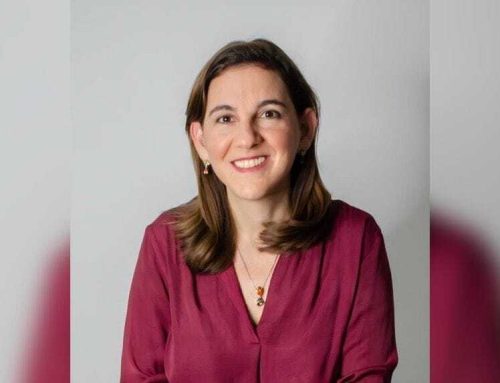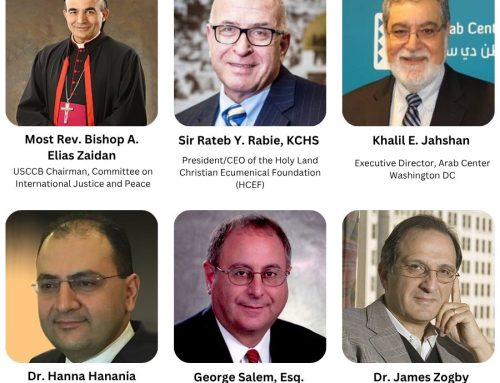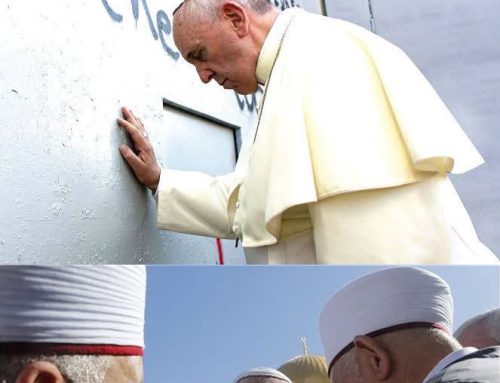The Holy Land Christian Ecumenical Foundation (HCEF) and the Royal Institute for Inter-Faith Studies (RIIFS) have joined together in a partnership that is outlined in a Memorandum of Understanding and Cooperation. This Memorandum, signed in October, provides guidelines for cooperative efforts “for mutual understanding of cultures and for the advancement of knowledge and its dissemination.” The RIIFS, located in Amman, Jordan, is dedicated to peacebuilding through dialogue, study, and the promotion of ethical values (https://english.riifs.org/en/
The HCEF, based in both Palestine and the U.S., strives “to replace despair with hope, fear with human security, and humiliation with dignity” (https://www.hcef.org/).
Clearly, therefore, these two organizations are an excellent match in their shared quest for progress in the Middle East.
A joint project that is already underway is the publication of a collection of essays to be titled, What Jerusalem Means to Us: Muslim Perspectives and Reflections. It will be a companion volume to the book What Jerusalem Means to Us: Christian Perspectives and Reflections (https://hcef.org/
The HCEF has been cultivating relationships with Muslim organizations for many months. In November 2018 the HCEF hosted an interfaith conference focused on Jerusalem, which was held at the Palestine Center in Washington, D.C. Representatives of Islam, Christianity, and Judaism participated in dialogue aimed at charting a path forward for sharing the Holy City in relationships of mutual respect and harmony. Six months later, in May 2019, a meeting took place at the HCEF headquarters in Washington, where both the Muslim and Christian faiths were enthusiastically represented. All participants agreed emphatically that faith communities must combat Islamophobia and increase interfaith understanding.
The RIIFS also has been working vigorously to promote interfaith friendship. It has already published a book, Collection of Renowned Arab Christians during the Arab Islamic Civilization. This book describes inspiring examples of Muslim-Christian cooperation in history—and of course, the book itself is the fruit of an interfaith partnership because the Arabic text published by the RIIFS was translated into English under the sponsorship of the HCEF. This English translation is available at https://hcef.org/arab-
The HCEF and the RIIFS are looking forward to future shared endeavors, with hopes for organizing conferences, seminars, and symposia, as well as additional joint publications, research projects, and training programs. In pursuing these goals, it is hoped that relationships can be developed with educational institutions that have active academic departments for Islamic Studies and Interfaith Studies.






